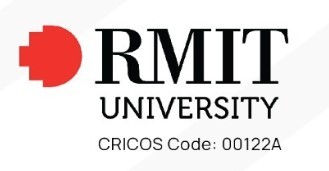
Master of Finance


Overview
Duration
FULL-TIME 2 YEARS OR 1.5 YEARS
FULL-TIME 2 YEARS OR 1.5 YEARS
Scholarship
YES
YES
Fee
AU$45,120
AU$45,120
Intake
FEBRUARY, JULY
FEBRUARY, JULY
Overview
- In the new world of finance, demand for innovative and analytical thinkers is higher than ever. Build these skills and more in the Master of Finance at RMIT.
- From sustainable finance to fintech, the Master of Finance in Melbourne keeps pace with the very latest trends in the finance industry — serving up a rich and relevant curriculum designed to prepare you for a rewarding career.
- This degree not only covers all the essential elements of finance, financial modelling, econometrics, trading, research and the analysis of financial markets, but it also develops soft skills to help you stand out. Highlights of the Master of Finance include the industry-led debating challenge, the CFA Institute Research challenge, and our finance career day.
- Where else will you get the opportunity to experience life on the trading floor? The purpose-built RMIT Trading Facility replicates a large bank or corporate treasury, using real-time market data from Refinitiv Eikon, a subsidiary of the London Stock Exchange, for simulation-style teaching and learning. One of the largest tertiary-based facilities in the world, it gives you invaluable opportunities to sharpen your skills and build your understanding of financial trading. Here, you’ll undertake technical workshops that span risk analysis, decision-making under pressure, foreign exchange, dealing techniques and more, all designed to turn you into the consummate finance professional. Having already applied theory to practice here, you’ll have the skills to pursue a thrilling and challenging career in banking, stockbroking, risk management, and beyond.
- By joining our Master of Finance, you’ll gain an in-demand set of skills that you can apply in the real world to help shape the future of finance.
Inquire Now
Career
- As a graduate of the Master of Finance, your career prospects are incredibly bright.
- Upon graduating, you will have covered all the broad areas of finances, while also building a solid repertoire of soft skills. It means you’ll be ready for wherever you want your career to take you. It could be the banking sector, the finance function of large corporations, financial advisory or fund management. Take your pick.
- Finance job titles can include:
- banker
- credit manager
- financier
- financial analyst
- financial controller
- finance director
- fund manager
- treasurer
- stockbroker
- working capital specialist.
Entry requirement
- To study this course you will need to complete one of the following English proficiency tests:
- IELTS (Academic): minimum overall band of 6.5 (with no individual band below 6.0)
- TOEFL (Internet Based Test - IBT): minimum overall score of 79 (with minimum of 13 in Reading, 12 in Listening, 18 in Speaking and 21 in Writing)
- Pearson Test of English (Academic) (PTE (A)): minimum score of 58 (with no communication band less than 50)
- Cambridge English: Advanced (CAE): minimum of 176 with no less than 169 in any component.
Popular Courses
Start your journey with landmark today!
Find your perfect course
Answer a few questions and
our course matcher will do the rest
Head Office
Level 5, IT Plaza
Kamaladi, Kathmandu
Tel: +977 14542781, 9845566225
E-mail: info@landmarkedu.com
Kamaladi, Kathmandu
Tel: +977 14542781, 9845566225
E-mail: info@landmarkedu.com
Sydney office
Suite 1 Level 1,
46 Macquarie Street,
Parramatta, NSW
Tel: +61 415 122 814
46 Macquarie Street,
Parramatta, NSW
Tel: +61 415 122 814
Branch office
Sahidchowk, Chitwan
Tel: 056-590825
Tel: 056-590825
Mahendrachowk, Biratnagar
Tel: 021-590828
Tel: 021-590828
Level 2, Milanchowk, Butwal, Rupandehi
Tel: 977-71-591694
Tel: 977-71-591694
© Landmark Education. All rights reserved.


